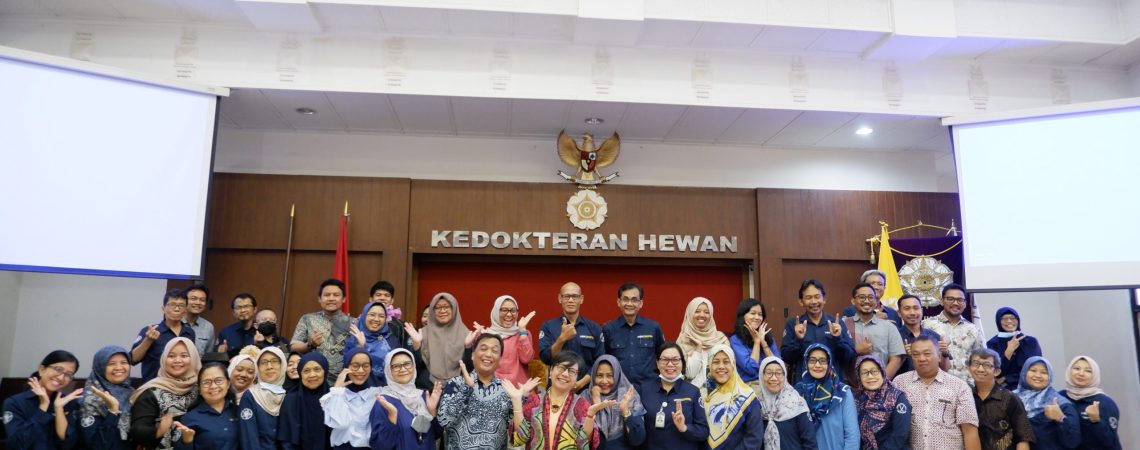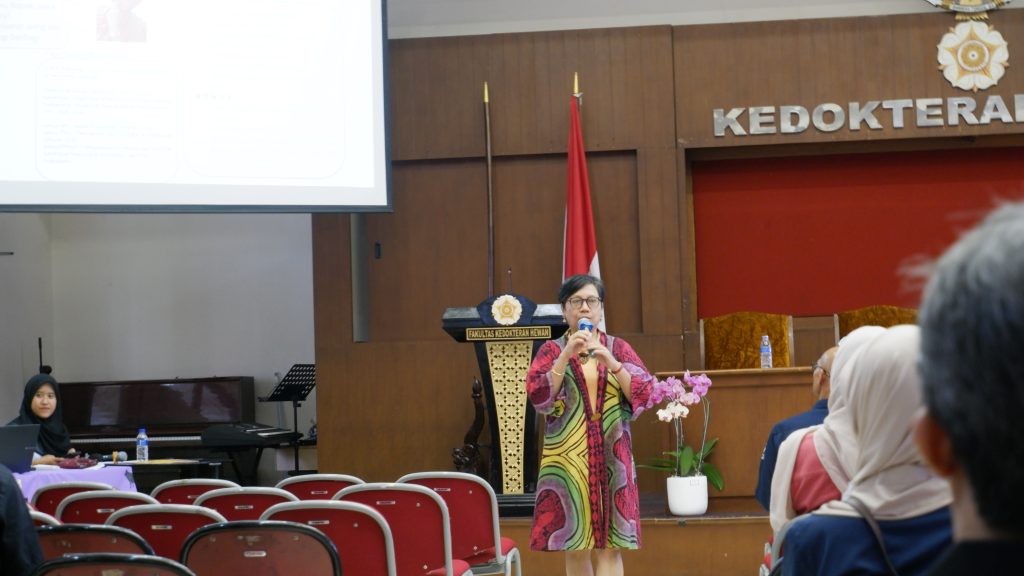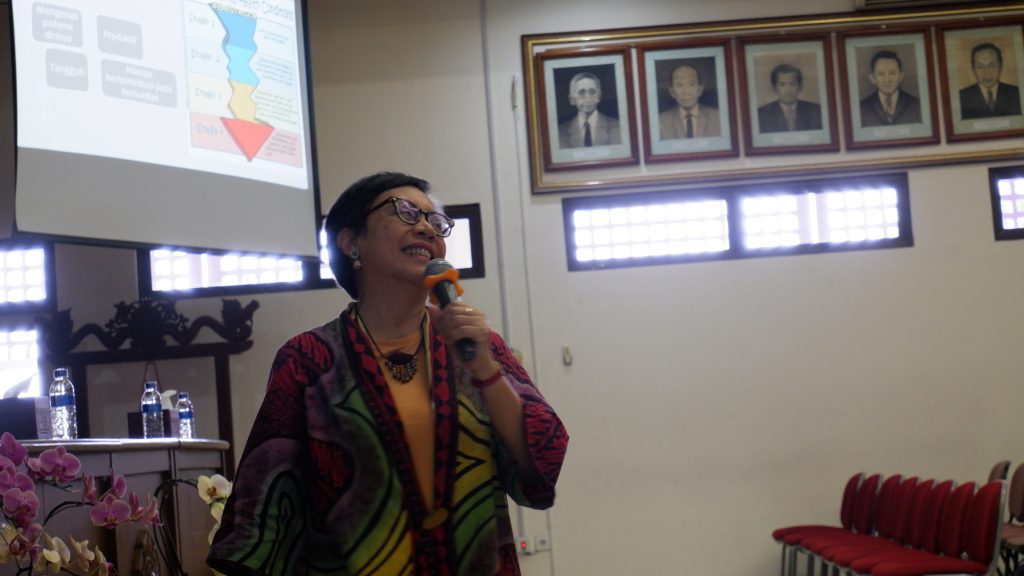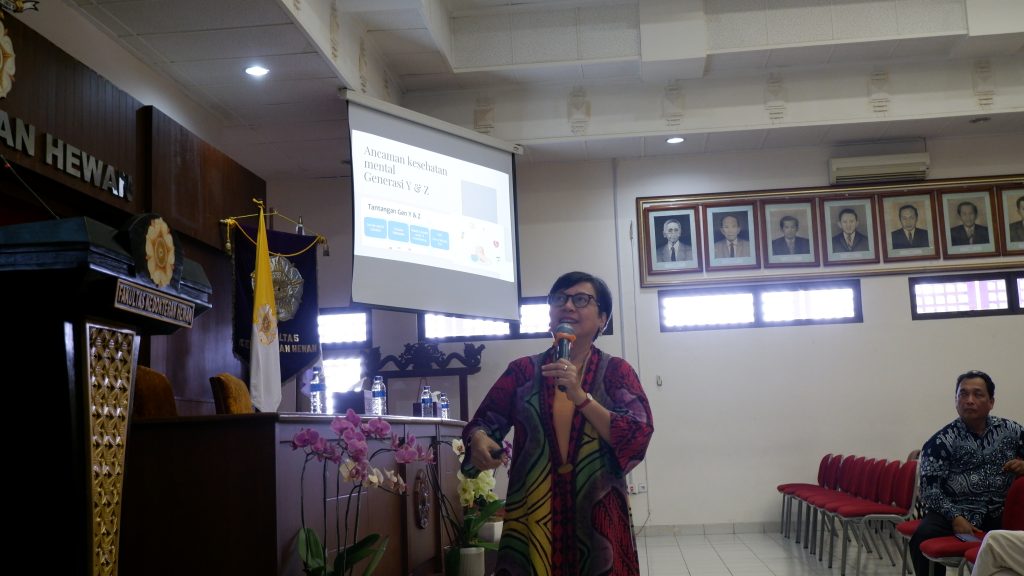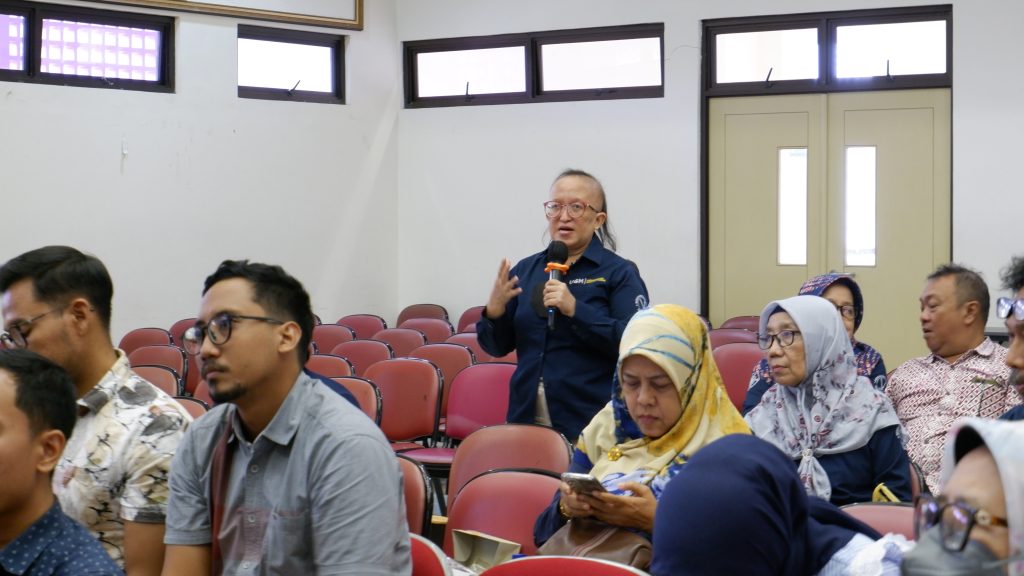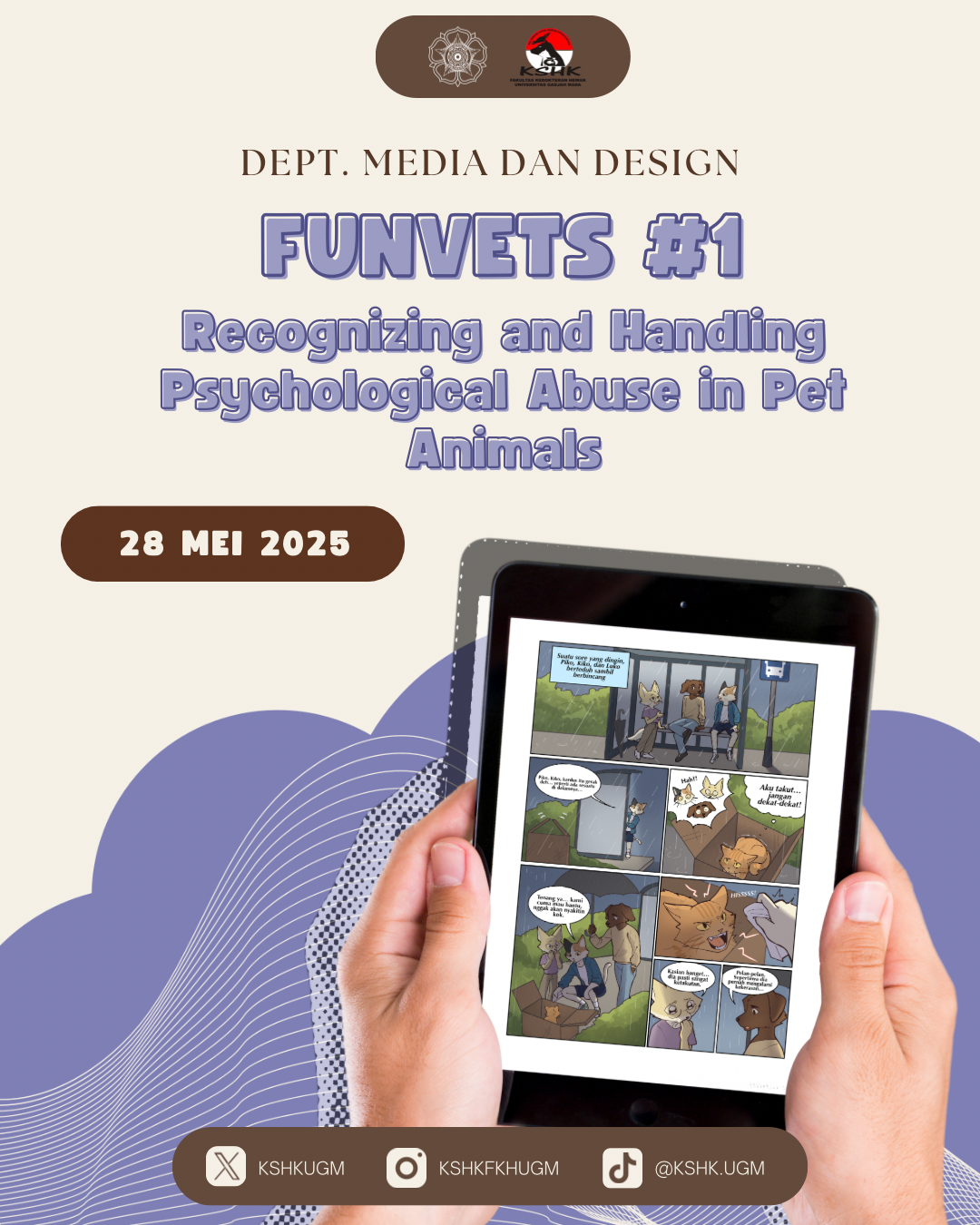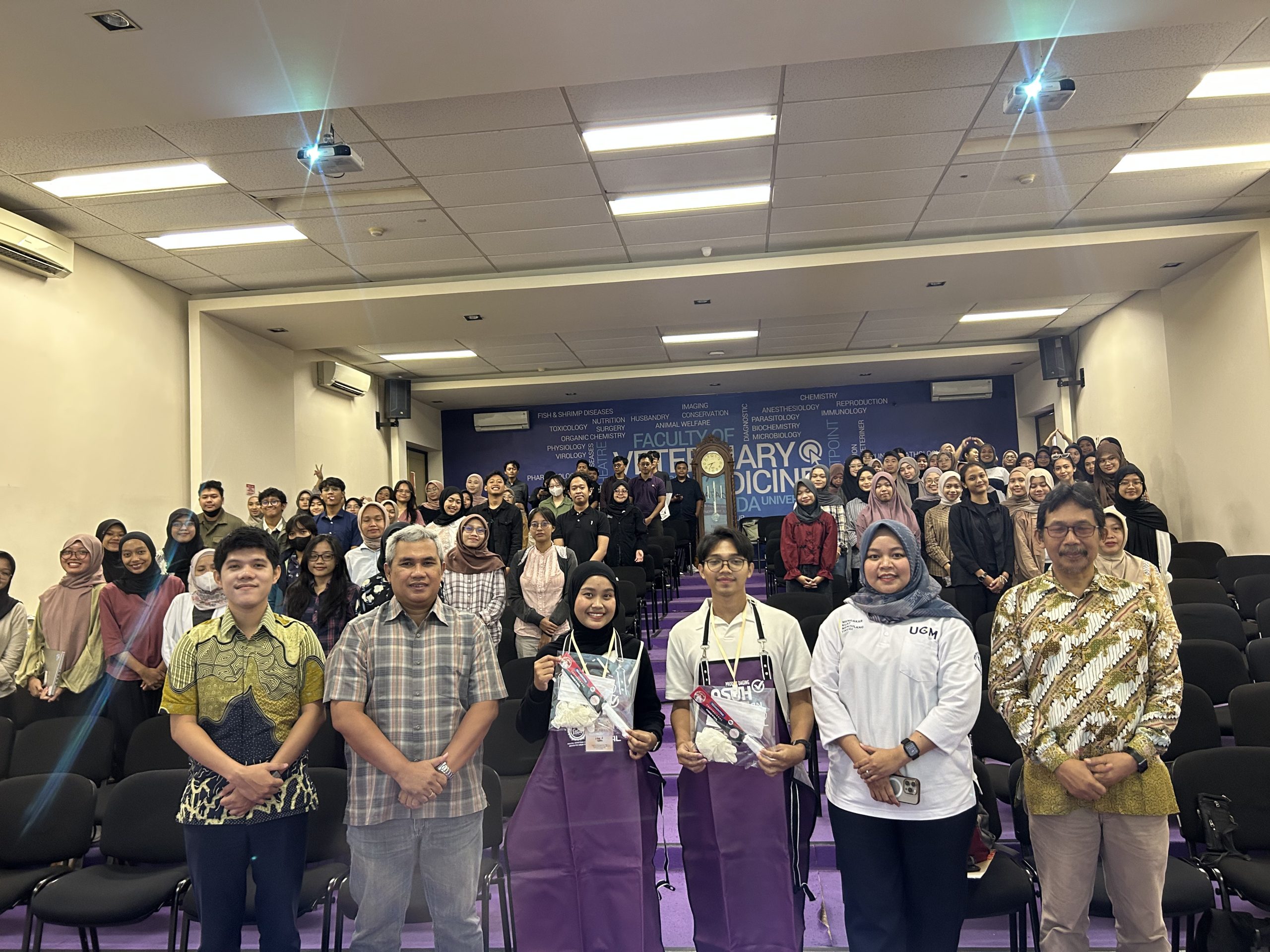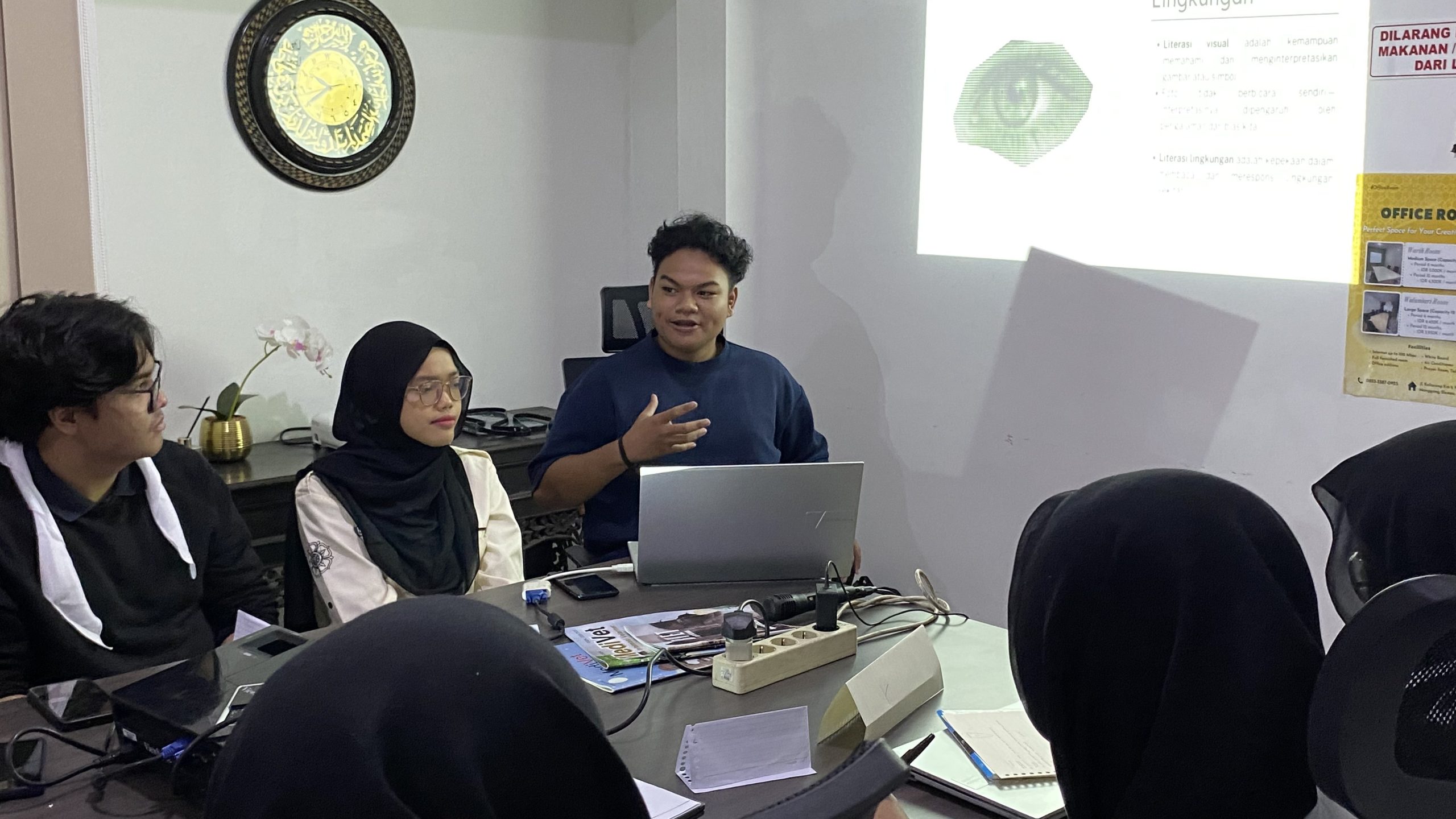Yogyakarta – Wednesday, 30 October 2024, the Faculty of Veterinary Medicine (FKH) UGM held a Lecturer Training event in Recognizing, Handling and Preventing Mental Disorders in Students. The speaker at this event was Prof. Dra. Yayi Suryo Prabandari, M.Sc., Ph.D who is the chairman of Health Promoting University UGM. The event started at 13.30 PM and began with lunch together. Next, the event was officially opened with opening speech from the Deputy Dean for Academic and Student Affairs, drh. Agung Budiyanto, M.P., Ph.D.
Prof. Yayi as Chair of Prevention and Handling of Sexual Violence Team (PPKS) explained the definition of mental health, stages of mental health condition, triggers for mental disorders, as well as threats to mental health for generations Y and Z. People who are mentally healthy can recognize their potential, be productive in their activities in everyday life, resilient in facing problems, and able to contribute to the community. He also emphasized that individuals who have mental illnesses do not necessarily look like people suffering from illnesses in general, but that does not mean that their illnesses are no more serious than people who suffer from illnesses that attack the physical body.
Currently, the threats faced by the younger generation regarding mental health include the many options and distractions from social media, academic and non-academic demands from family and the surrounding environment, overthinking, and FOMO (Fear of Missing Out). Apart from that, other triggers include addiction to gadgets and online games, online gambling, cyber bullying, and excessive online shopping. These things can trigger stress which is defined as feelings of pressure, anxiety or tension. Stimulus or response that requires individuals to make adjustments.
Several coping methods that can be used to reduce mental disorders and stress include increasing mental health literacy, take a break from social media, and increase protective factors such as social networks and self-esteem. Build good habits from small things. Track time spent for a week. Take time for self-reflection. Always say thank you and be grateful. Set limits on doing assignments. Know your own limits. In the campus environment, reducing the risk of mental disorders can be done by creating a safe, comfortable and enjoyable learning atmosphere.
Furthermore, Prof. Yayi reminded us to always get enough rest, increase activities that suit your interests and talents, and eat more fruit and vegetables. Physical health has a good effect on mental health. Exercise can increase the hormone Endorphin (pain reliever, relax). He recommends regular and measured exercise, at least 150 per week (30 minutes per day). Choose what suits your situation, start gradually, and don’t force yourself. This also supports the HPU program towards a Healthy University.
After the presentation ended, the lecturers as participants were invited to conduct questions and answers with the speaker. Participants can share the problems they face regarding students’ mental health conditions. After that, the event closed with a group photo and handing of certificates.
Implementation of lecturer training activities in recognizing, treating and preventing student mental disorders is an effort to increase mental health literacy and commitment to creating a less-stressful space for the FKH UGM academic community. It is hoped that this event will increase participants’ knowledge and become the main provision for veterinary lecturers so that in the future they can better recognize, treat and prevent students’ mental disorders earlier.
Lecturer training event in recognizing, treating and preventing student mental disorders supporting SDGs (Sustainable Development Goals) values in point 3 Good Health and Wellbeing, SDG point 4 Quality Education, SDG point 5 Gender Equality, SDG point 10 Reduced Inequalities, SDG point 16, namely Peace, Justice and Strong Institutions, and SDG point 2, namely No Hunger.

